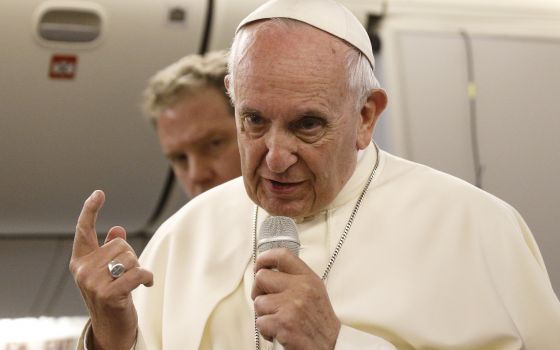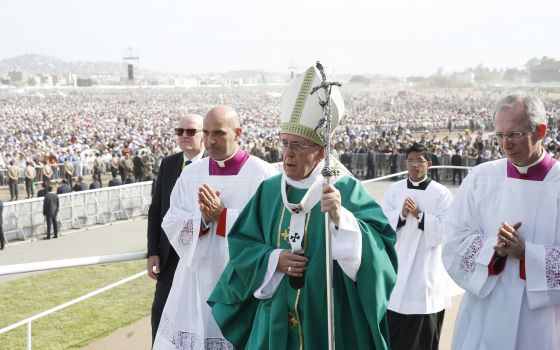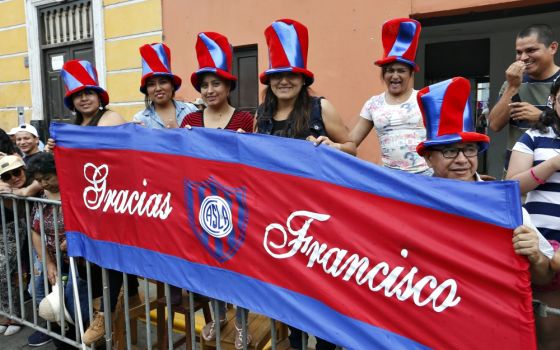Boston Cardinal Sean O'Malley, one of Pope Francis' key advisors on clergy sexual abuse, acknowledged Jan. 20 that the pontiff's defense of a Chilean bishop accused of covering up abuse was "a source of great pain" for survivors.
In an unusually blunt statement from a church prelate in response to a controversial action of a pope, the cardinal also said that expressions of doubt about survivors' testimony "abandon those who have suffered reprehensible criminal violations of their human dignity."
O'Malley is responding to Francis' defense of Osorno, Chile Bishop Juan Barros Madrid, who is accused of not reporting abuse perpetrated by a fellow priest in the 1980s and '90s.
Questioned Jan. 18 by reporters about Barros during a visit to Chile, the pontiff called the charges "calumny" and said: "There is not one piece of evidence against him."
Francis' words enraged the abuse survivor community and many Chilean Catholics, as three survivors have testified that Barros witnessed Fr. Fernando Karadima abusing them. Abuse tracking website BishopAccountability.org said the pope had "turned back the clock to the darkest days of this crisis."
"It is understandable that Pope Francis’ statements ... were a source of great pain for survivors of sexual abuse by clergy or any other perpetrator," O'Malley said in his statement. "Words that convey the message 'if you cannot prove your claims then you will not be believed' ... relegate survivors to discredited exile."
Protests about Barros' appointment followed Francis throughout his Jan. 15-18 trip to Chile, where he was visiting before carrying on to Peru.
Terrence Donilon, the Boston archdiocese's secretary for communications and public affairs, said in a brief email that O'Malley is also traveling to Peru on a previously scheduled visit for the 60th anniversary of the Missionary Society of St. James the Apostle. The spokesman said he expects the cardinal to be with Francis at some point while they are both in the country.
After the pontiff made his comment Jan. 18, one Karadima victim told NCR the pope's defense of Barros appeared to go in the "opposite direction" of a meeting the pope held with Chilean clergy abuse victims Jan. 16.
José Andrés Murillo, executive director of the Chilean foundation Para la Confianza, also said he wanted to ask Francis why he has met with Barros and not the survivors who accuse him of covering up.
O'Malley said Jan. 20 that he did not know why Francis "chose the particular words he used" in Chile.
"What I do know," the cardinal stated, "is that Pope Francis fully recognizes the egregious failures of the Church and its clergy who abused children and the devastating impact those crimes have had on survivors and their loved ones."
Barros served as the head of Chile's military diocese until Francis moved him to Osorno in 2015.
New revelations about Francis' awareness of claims that Barros protected Karadima came Jan. 12, with the leak of a previously unknown letter the pope had written to the Chilean bishops' conference in 2015, acknowledging that the bishop was controversial.
O'Malley serves on Francis' advisory Council of Cardinals and was also appointed by the pontiff in 2014 to lead the Pontifical Commission for the Protection of Minors, a new group created by the pope to advise him on keeping children safe in the church.
The status of that group however is now unclear, as the three-year terms of office expired Dec. 17 without word from Francis or the Vatican if the current members would be reappointed or new members found.
[Joshua J. McElwee is NCR Vatican correspondent. His email address is jmcelwee@ncronline.org. Follow him on Twitter: @joshjmac.]
Advertisement








